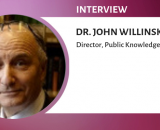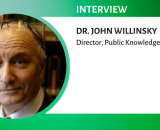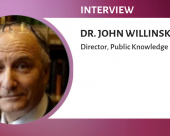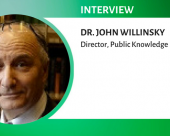Building an infrastructure for global knowledge exchange through open access
Interview with Dr. John Willinsky
Dr. John Willinsky, Founder and Director of the Public Knowledge Project, is world-renowned for both theoretical and practical contributions to the open access movement. In this interview series, he talks about the importance of sharing knowledge, the inequity of access to research in certain parts of the world and how digital publishing and open-access initiatives might help bridge the gap, and how the open access movement is advancing across the globe.

Dr. John Willinsky is a prominent figure in scholarly communications and known for both practical and theoretical contributions to the open access movement. He is the author of the award-winning books The Access Principle: The Case for Open Access to Research and Scholarship (MIT Press, 2006) and Learning to Divide the World: Education at Empire's End (University of Minnesota Press, 1998). Most of his recent research and published works discuss the topic of digital scholarship and open access.
Currently, Dr. Willinsky is Khosla Family Professor of Education at Stanford University and Professor of Publishing Studies (Part-time) at Simon Fraser University. He is also Founder and Director of the Public Knowledge Project (PKP) in partnership with Simon Fraser University Library. (For extended biographical information, please see the first part of this two-part interview.)
PKP has developed open source software for the online management and publishing of (primarily) open access journals and books. PKP is also collaborating with other global associations on journal-development initiatives in Africa.
In the first part of our Skype-based video interview, Dr. John Willinsky joined us to discuss the changes and challenges in academic communication and explain the idea of "public knowledge." In this second part, Dr. Willinsky goes on to discuss open access initiatives and who would stand to lose if such initiatives were to fully succeed.
This interview series was conducted by Alagi Patel.
Published on: Jul 10, 2014
Comments
You're looking to give wings to your academic career and publication journey. We like that!
Why don't we give you complete access! Create a free account and get unlimited access to all resources & a vibrant researcher community.











